We talk to the founders of Bysol, a non-profit humanitarian foundation using cryptocurrency to help dissidents in Belarus and aid the Ukrainian war effort


We talk to the founders of Bysol, a non-profit humanitarian foundation using cryptocurrency to help dissidents in Belarus and aid the Ukrainian war effort
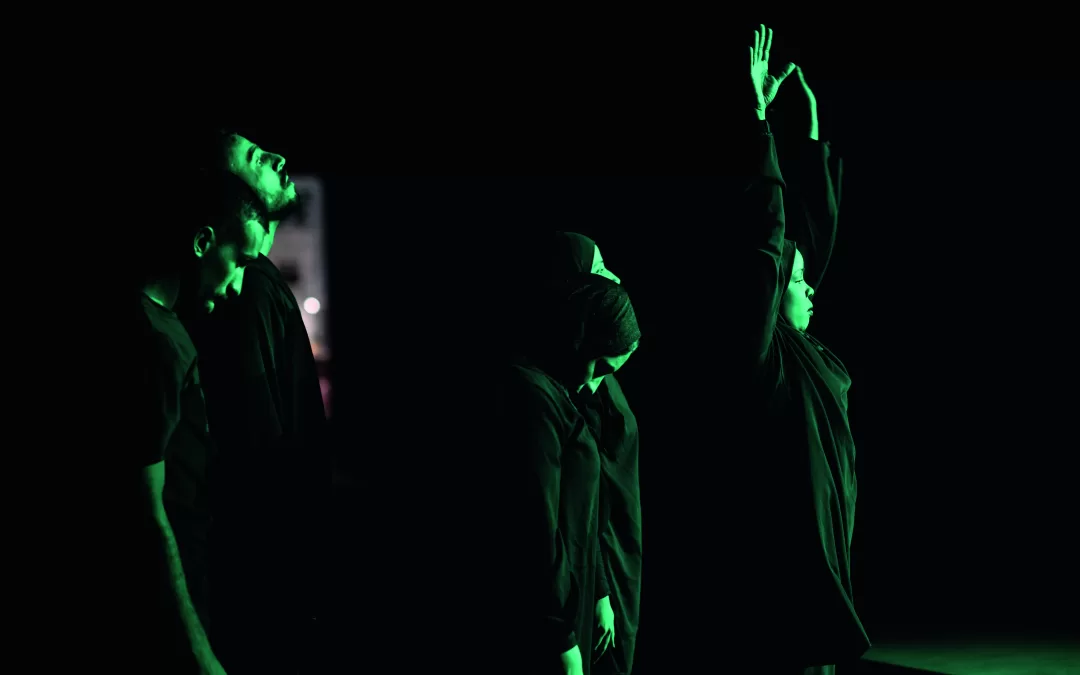
Laura Silvia Battaglia recalls the last play she saw in Gaza and talks to its director today about how theatre is still providing a voice for the displaced, even in refugee camps

A look at the violent attacks being carried out against Germany’s Green Party as politicians standing on an eco-ticket in the European Parliament elections suffered big losses
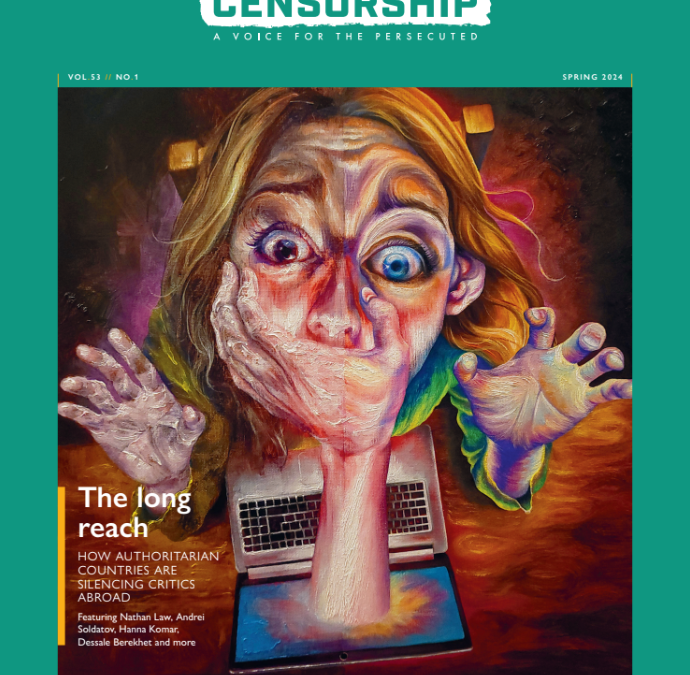
Volume 53.01 Spring 2024

Contents
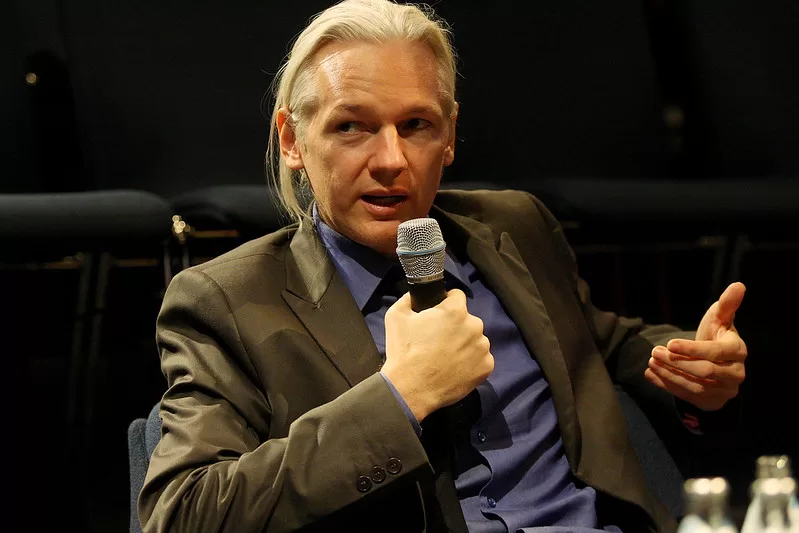
Our editor-at-large opens up about his personal, complicated relationship with WikiLeaks founder Julian Assange

A conversation between a wokey comedian, Rosie Holt, and her wonky lawyer brother, Charlie Holt, co-chair of the UK Anti-SLAPP Coalition, on how open secrets survive on the comedy circuit
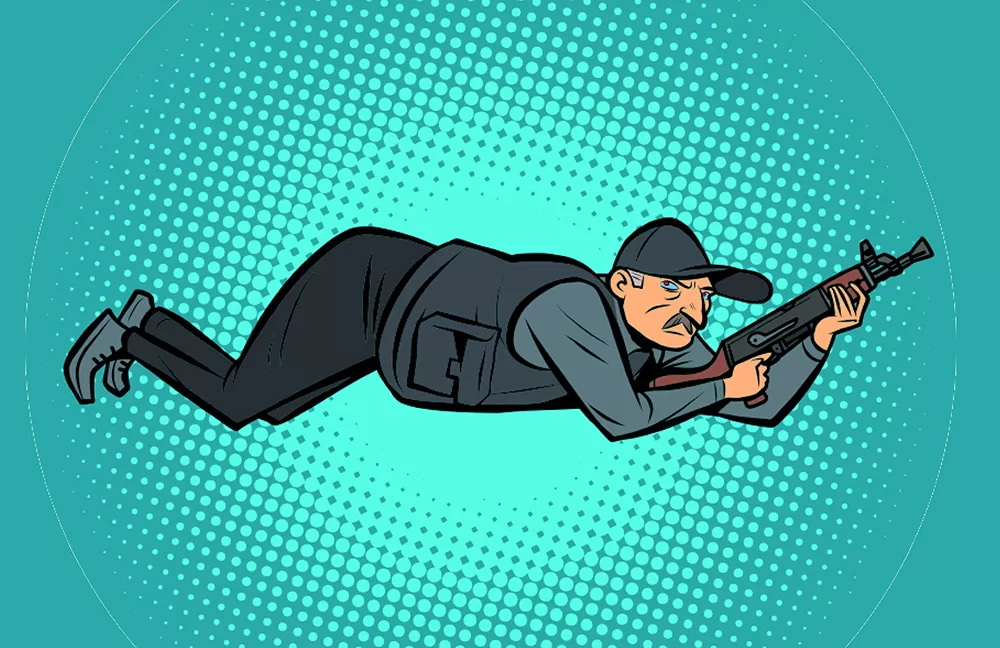
Belarus’ belligerent leader is both tyrannical and comical. It’s fodder for the nation’s comics – when they’re not being muzzled
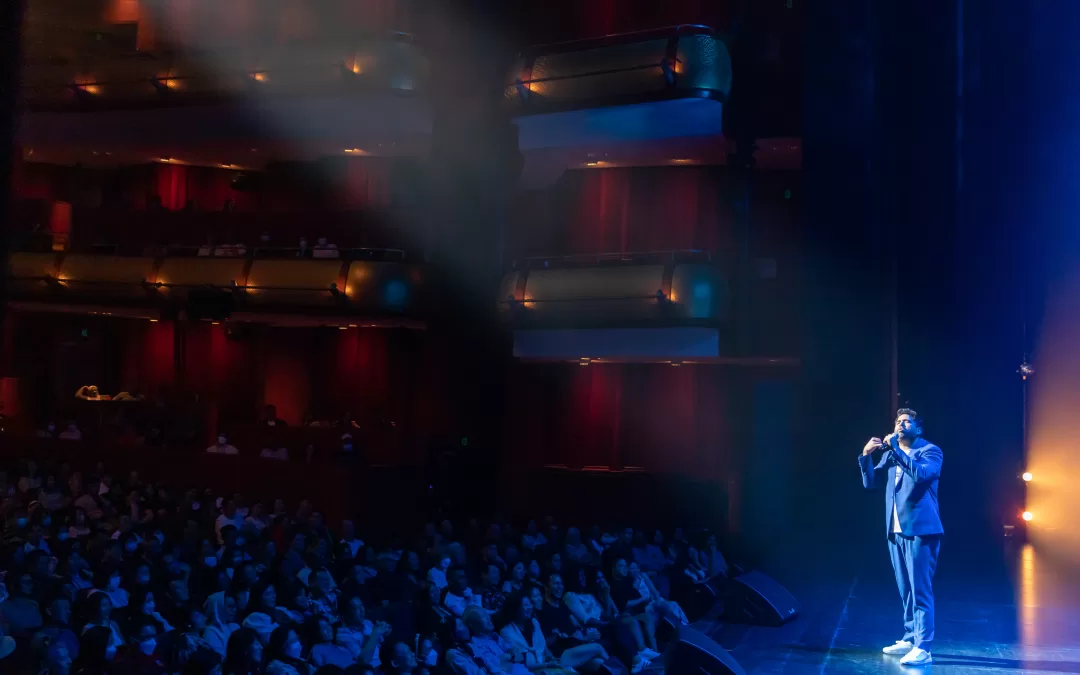
Malaysian Comedian Rizal Van Geysel tells Francis Clarke how jokes landed him with a court case which inspired his recent show
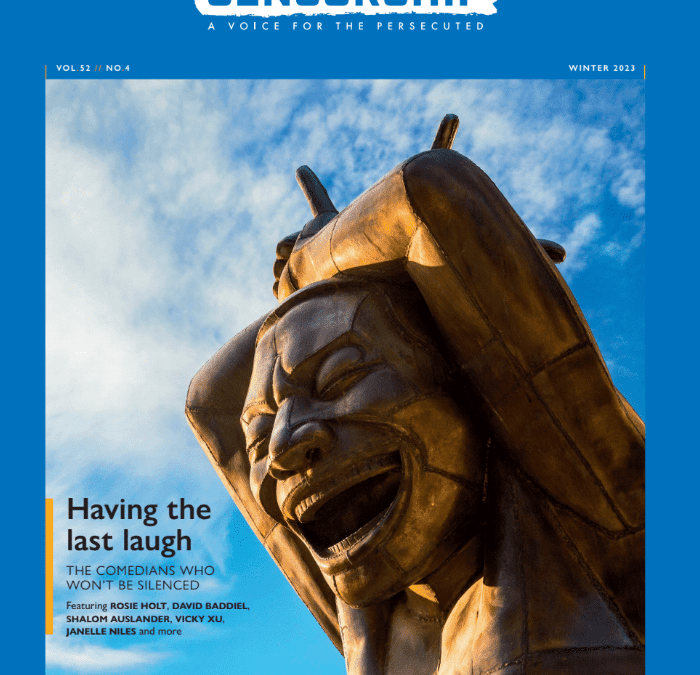
Contents
A quarterly journal set up in 1972, Index on Censorship magazine has published oppressed writers and refused to be silenced across hundreds of issues.
The brainchild of the poet Stephen Spender, and translator Michael Scammell, the magazine’s very first issue included a never-before-published poem, written while serving a sentence in a labour camp, by the Soviet dissident Aleksandr Solzhenitsyn, who went on to win a Nobel prize later that year.
The magazine continued to be a thorn in the side of Soviet censors, but its scope was far wider. From the beginning, Index declared its mission to stand up for free expression as a fundamental human right for people everywhere – it was particularly vocal in its coverage of the oppressive military regimes of southern Europe and Latin America but was also clear that freedom of expression was not only a problem in faraway dictatorships. The winter 1979 issue, for example, reported on a controversy in the United States in which the Public Broadcasting Service had heavily edited a documentary about racism in Britain and then gone to court attempting to prevent screenings of the original version. Learn more.